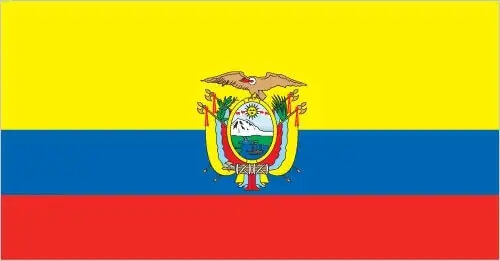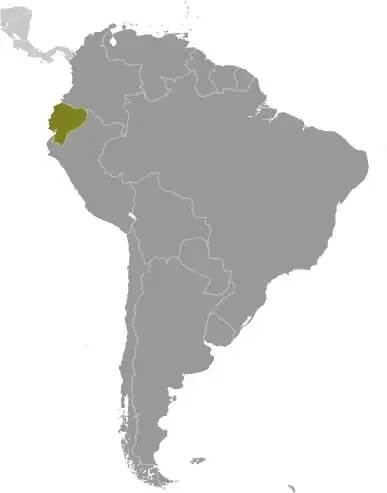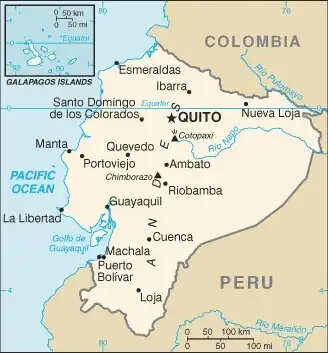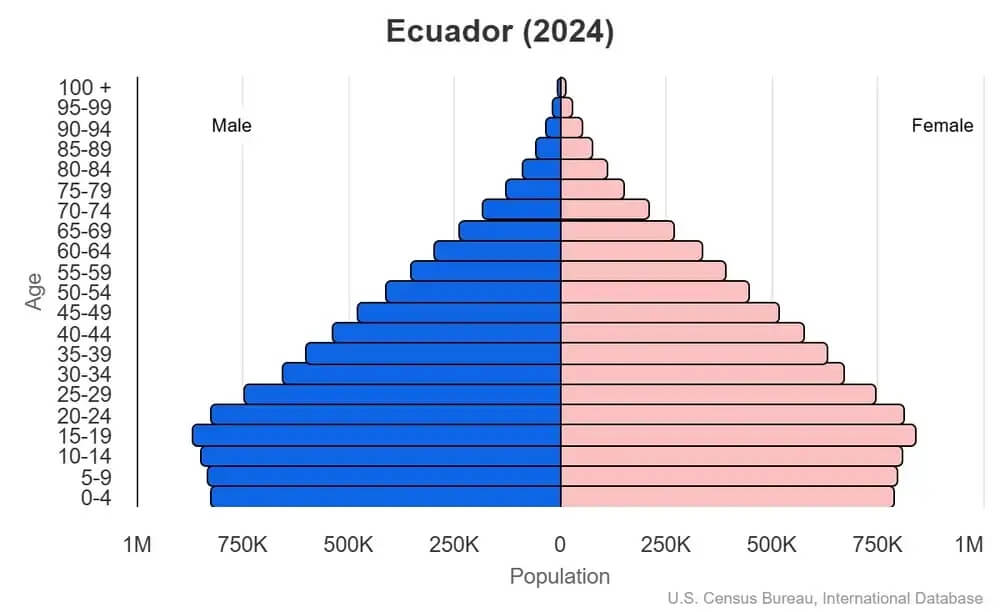World Book
Ecuador
World Book Index
68


With a score of 68, the country is ranked 71st out of 158 countries in the World Book ranking. (more information)
Introduction
The region known today as Ecuador was a Spanish colony until 1822 and became an independent republic in 1830. Between 1904 and 1942, Ecuador lost territory in conflicts with its neighbors. The country has been politically unstable for much of its recent history, with 20 constitutions since gaining independence.
Neighboring countries
Colombia - Peru
Geography
Area
total: 283,561 sq km
land: 276,841 sq km
water: 6,720 sq km
Climate
tropical along coast, becoming cooler inland at higher elevations; tropical in Amazonian jungle lowlands
Natural resources
petroleum, fish, timber, hydropower
People and Society
Population
total: 18,309,984 (2024 est.)
Ethnic groups
Mestizo (mixed Indigenous and White) 77.5%, Montubio 7.7%, Indigenous 7.7%, White 2.2%, Afroecuadorian 2%, Mulatto 1.4%, Black 1.3%, other 0.1% (2022 est.)
Languages
Spanish (Castilian; official) 98.6%, indigenous 3.9% (Quechua 3.2%, other indigenous 0.7%), foreign 2.8%, other 0.6% (includes Ecuadorian sign language) (2022 est.)
Religions
Roman Catholic 68.2%, Protestant 19% (Evangelical 18.3%, Adventist 0.6%, other Protestant 0.2%), Jehovah's Witness 1.4%, other 2.3%, none 8.2% don't know/no response 1% (2023 est.)
Population growth rate
0.94% (2024 est.)
Government
Government type
presidential republic
Capital
name: Quito
Executive branch
chief of state: President Daniel NOBOA Azin (since 23 November 2023)
head of government: President Daniel NOBOA Azin (since 23 November 2023)
Diplomatic representation in the US
chief of mission: Ambassador Pablo Agustín ZAMBRANO Albuja (since 24 July 2025)
Diplomatic representation from the US
chief of mission: Ambassador (vacant); Chargé d’Affaires Lawrence PETRONI (since 17 April 2025)
Economy
Economic overview
highly informal South American economy; USD currency user; major banana exporter; hard hit by COVID-19; macroeconomic fragility from oil dependency; successful debt restructuring; China funding budget deficits; social unrest hampering economic activity
Real GDP (purchasing power parity)
$252.728 billion (2024 est.)
$257.889 billion (2023 est.)
$252.861 billion (2022 est.)
Real GDP per capita
$13,900 (2024 est.)
$14,300 (2023 est.)
$14,200 (2022 est.)
Exports
$38.468 billion (2024 est.)
$35.687 billion (2023 est.)
$36.588 billion (2022 est.)
Exports - partners
USA 22%, China 21%, Panama 12%, Japan 3%, Peru 3% (2023)
Exports - commodities
crude petroleum, shellfish, bananas, fish, gold (2023)
Imports
$33.97 billion (2024 est.)
$35.421 billion (2023 est.)
$36.644 billion (2022 est.)
Imports - partners
USA 27%, China 20%, Colombia 7%, Brazil 4%, Peru 4% (2023)
Imports - commodities
refined petroleum, coal tar oil, cars, packaged medicine, plastics (2023)
Human Development Index
The country's Human Development Index (HDI) is 0.777, ranking it 88th out of 193 countries tested. (more information)
World Happiness Report
The World Happiness Report ranked the country 61st out of 158 countries tested with a score of 5.976. (more information)



